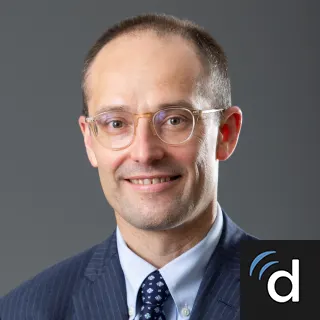 Peter Schilling
Principal Investigator
Dartmouth-Hitchcock Medical Center, White River Junction VAMC
Peter Schilling
Principal Investigator
Dartmouth-Hitchcock Medical Center, White River Junction VAMC
I am an Assistant Professor of Orthopedic Surgery. My research is devoted to the application of machine learning (ML) to musculoskeletal health, namely orthopedic surgery. My projects span three subdomains:
- Translating existing advances in ML (e.g., image recognition, voice recognition, predictive modeling) into practical solutions for clinical orthopedics.
- Using ML as a tool for pure scientific discovery within orthopedics, so called data-driven, algorithmically-aided scientific discoveries.
- Partnering with teams and individuals with deep, specialized expertise in machine learning to address potential shortcomings of the technology when applied to medical-specific use cases.
I’ve spent significant portions of my career in three relevant domains: Academic research, clinical orthopedics, and the technology sector. I returned to academic medicine in 2021 with the deeply held belief that the above described scientific and translational efforts are best taken on with strong leadership from “team science” where the potential for unintended consequences of the technology can be actively managed and not yield to over-exuberant market hype and profit motives. I have formal training in statistics, health services research, and health economics. My work in these areas started in the 1990s at the National Bureau of Economic Research as a computer programmer for Dr. Mark McClellan, then at Stanford University’s Department of Economics. I built on this fund of knowledge in the Robert Wood Johnson Clinical Scholars Program where I leveraged my training to conduct a series of studies that went on to affect policy within the American College of Surgeons. After completing my clinical training I took a critically important and valuable career detour that directly informs my research interests today. For nearly a decade I built, led, and consulted for health IT and digital health startups in Silicon Valley. These included a health IT company focused on problems of data and software interoperability in hospitals (dataFascia), a consulting company building software to help providers manage bundled payments (Clarify Health Solutions), and finally, an augmented intelligence company building a voice-enabled digital assistant for doctors (Suki AI). Suffice it to say, I have a strong grasp of the digital health and health IT landscapes. I understand the problems of data and software interoperability in healthcare – challenges critical to the success of machine learning applications. I’ve worked with software engineers and data scientists for years; I can speak their language and I understand how they work. It’s now my intention to bring these experiences and skill sets to bear on methodically advancing the science of machine learning and translating those advances into solutions that meet the Quintuple Aim: Better health, improved care experience, clinician well-being, lower cost, and health equity throughout.
When I’m not egaged in research or surgery, I’m apparently a German singer, composer, and music producer: peterschilling.com.
